By: Irene Pedroche-Tanyag
The National Qualifying Examination for the Fisheries Scholarship Program (NQE-FSP) 2024, held on October 19, 2024, marks a significant milestone in enhancing educational access for deserving candidates in the fisheries sector across the country. This examination was conducted simultaneously nationwide, with four designated testing centers in the Cordillera region: the Regional Office in Baguio City, Ifugao Provincial Science High School in Lamut, RJ Domingo Fish Farm and Resort in Pudtol, Apayao, and the Provincial Fishery Office in Tabuk , Kalinga.
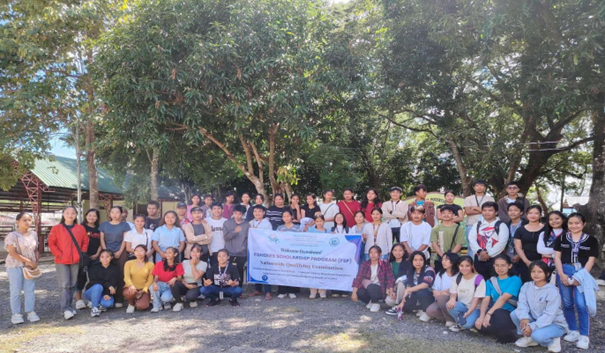
Aspiring Ifugao learners who have taken the nationwide FSP exam.
This initiative reflects the Fisheries Scholarship Program’s (FSP) commitment to empowering marginalized communities by providing essential financial support for students pursuing higher education in fisheries. By facilitating access to education, the program aims to cultivate a new generation of skilled professionals dedicated to sustainable practices in the fisheries industry. The FSP, established by the Bureau of Fisheries and Aquatic Resources (BFAR) under FAO 257-1 series of 2020, aims to support deserving students pursuing higher education in fisheries. This initiative is designed to produce skilled professionals or future fisheries leaders to meet the growing demands of the fisheries sector and promote the sustainable management of aquatic resources.
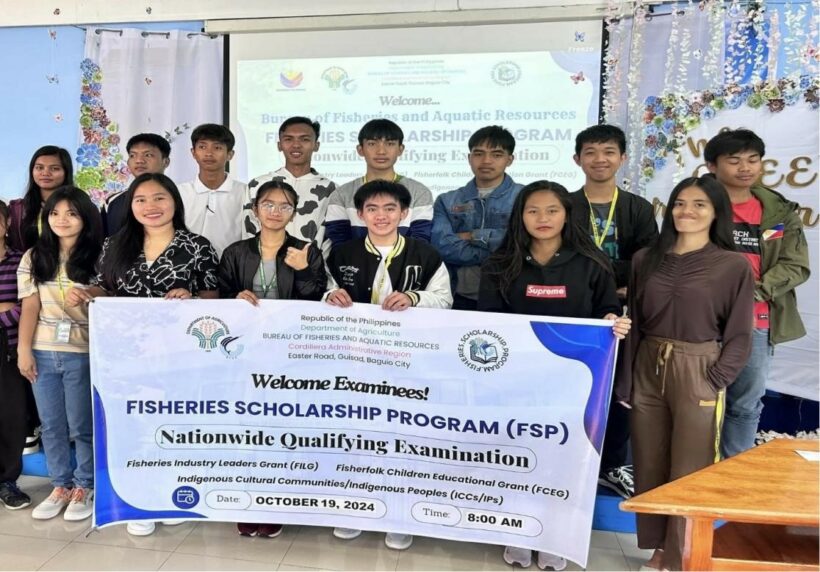
Examiners from Abra, Benguet, and Mountain Province have taken their exams, eagerly hoping to secure one of the 26 available slots in the FSP, reflecting their commitment to advancing their education.
The FSP comprises three key components, each targeting specific groups of students: The Fisherfolk Children Educational Grant (FCEG) provides financial assistance to senior high school graduates whose parents or guardians are registered municipal fisherfolk. This grant aims to improve educational opportunities for children from fishing families, helping them access higher education without financial constraints. The second is the Fisheries Industry Leaders Grant (FILG), recognizing senior high school graduates who have shown academic excellence. This merit-based scholarship supports top-ranking students aspiring to pursue degrees in fisheries, fostering future leaders in the industry and contributing to its growth and development. The third is the Indigenous Cultural Communities/Indigenous Peoples Grant (ICCs/IPs) assists members of indigenous communities who are financially disadvantaged but deserving. This component aims to preserve indigenous knowledge related to aquatic resources while promoting inclusivity and empowerment among graduates from alternative learning systems or senior high schools affiliated with recognized indigenous tribes.
The FSP seeks to produce qualified professionals for the government and fisheries industry, enhance employment opportunities for graduates, and improve the socio-economic conditions of fisherfolk and indigenous communities. Through these initiatives, BFAR is committed to strengthening the capacity of future fisheries professionals while promoting sustainable practices that benefit both individuals and communities involved in aquatic resource management.
The FSP is essential in advancing several Sustainable Development Goals (SDGs), particularly in promoting education and sustainable practices within the fisheries sector. The recent Nationwide Qualifying Examination for the FSP exemplifies this commitment by identifying and supporting deserving candidates who will emerge as future leaders in sustainable fisheries management. Central to the FSP is Quality Education (SDG #4), which provides financial assistance to students from marginalized communities, enabling them to pursue higher education in fisheries. This initiative not only enhances individual perspectives but also cultivates a knowledgeable workforce prepared to address contemporary challenges in the sector.
Additionally, the FSP addresses No Poverty (SDG #1) and Reduced Inequalities (SDG #10) by targeting marginalized groups, including fisherfolk children and indigenous peoples, thereby promoting equal access to educational opportunities. Through these initiatives, the FSP empowers students to advocate for sustainable practices that benefit both their communities and the environment. The recent examination reflects a collective effort toward nurturing a new generation of professionals committed to achieving broader SDG objectives, ensuring that the fisheries sector can thrive sustainably for years to come.
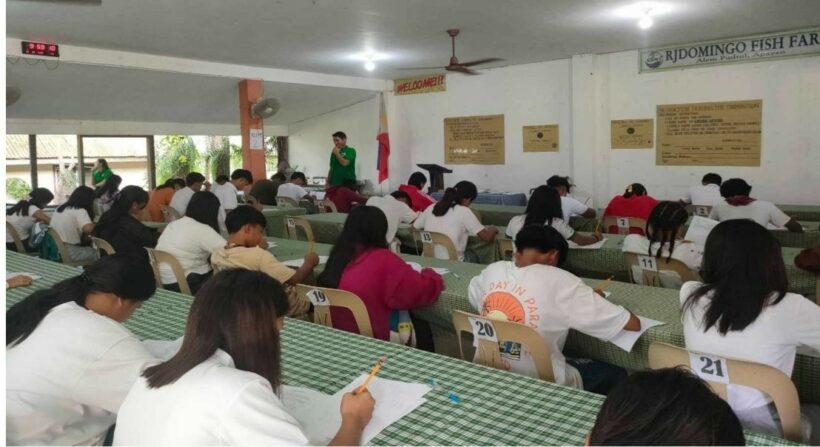
The scholarship competition was fierce! Apayao contributed 52 examinees to the pool of 300 master-listed applicants vying for 20 FCEG, 3 FILG, and 3 ICC/IP slots.
The Kalinga Police Provincial Office played a crucial role in ensuring the safety of aspirin students, allowing them to take the BFAR scholarship exam amidst ongoing tribal conflict. Their dedicated efforts provided the necessary security, enabling these hopeful individuals to focus on their educational aspirations with confidence and peace of mind.
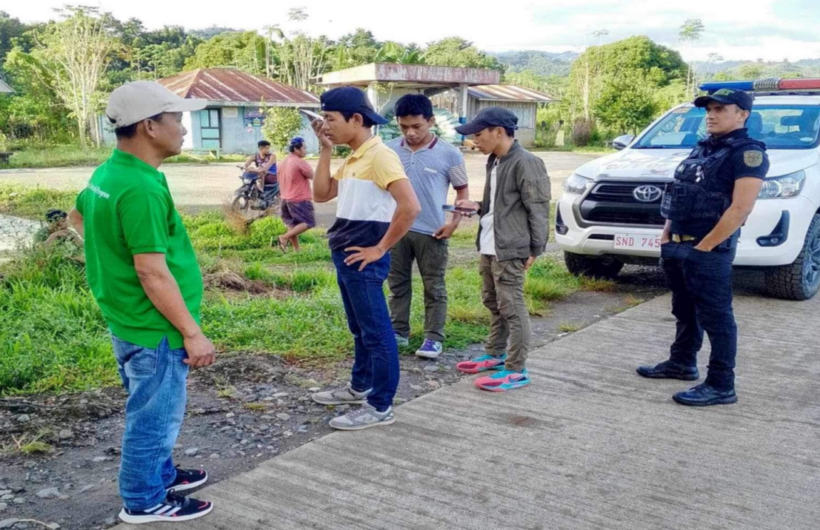
Amidst the backdrop of tribal conflict, the Kalinga Police Provincial Office played a crucial role in ensuring the safety of our hopeful students during the BFAR scholarship exam. Their vigilance empowered these aspiring scholars to focus on their futures without fear, demonstrating unwavering support for equitable education. Thank you for safeguarding our future leaders!

Ifugao Province examinees are focused and determined to secure one of the 26 slots available in the FSP.
The successful implementation of the Fisheries Scholarship Program’s National Qualifying Examination (FSP NQE) hinges on the tireless efforts of numerous individuals and organizations. Examiners, proctors, secretariat members, and facilitators all played crucial roles in ensuring an equitable examination process. Their unwavering dedication to details is instrumental in creating opportunities for aspiring scholars.
Particular recognition goes to the Provincial Fishery Officers (PFOs) for their invaluable contributions. Their logistical support proved essential, especially for candidates from remote areas. By providing transportation, accommodation, and meals, the PFOs alleviated the financial burden on families, enabling participants to concentrate fully on the examination. Additionally, they collaborated with local officials and communities to disseminate examination details, maximizing candidate participation.
Without the collective efforts of these dedicated individuals and organizations, the NQE-FSP would not have been possible. Their commitment to nurturing the next generation of leaders in the fisheries industry is truly commendable.
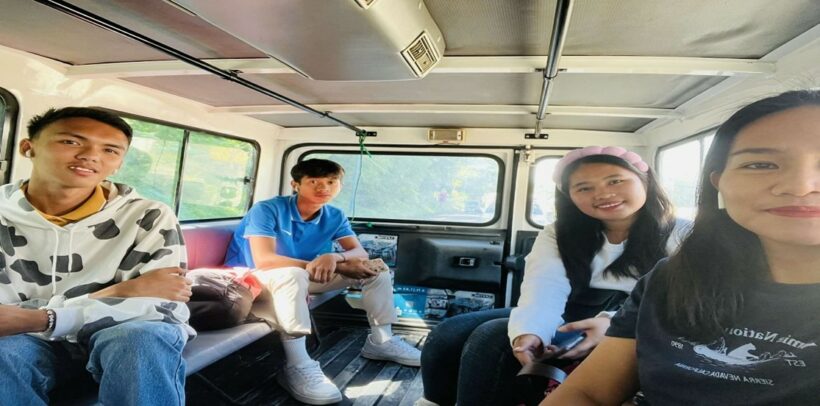
PFO Abra Designate Riza P. Fichao demonstrated exceptional commitment to the well-being of examinees from Abra by personally accompanying them to the Baguio testing center. She provided complimentary accommodation and meals prior to the examination, ensuring that these students were well-supported. This initiative aims to uplift the marginalized sector, particularly the children of fisherfolk, by empowering them in their pursuit of educational opportunities. Through her efforts, she exemplifies a profound dedication to fostering access to education and creating pathways for future success.
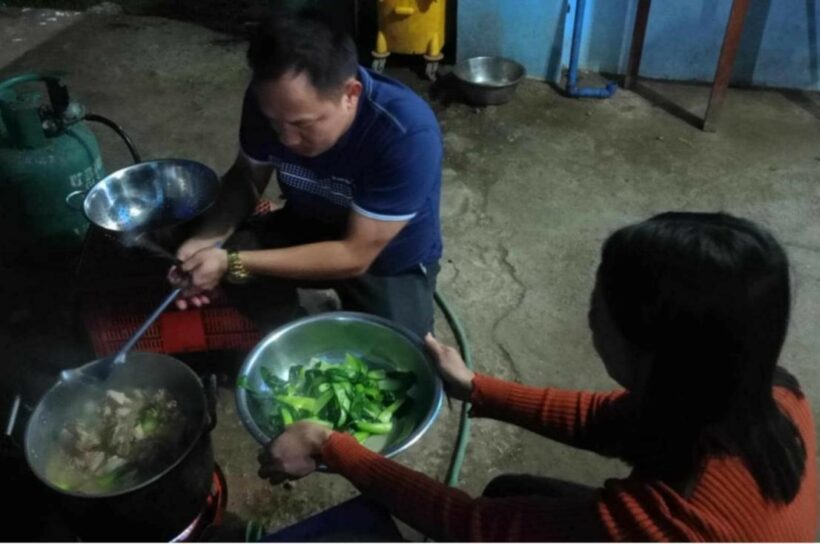
Provincial Fishery Office Benguet staff member Arnold Noces and former scholar Eden Basilio prepared the famous “pinikpikan,” a traditional dish from the Cordillera region, for examinees at the Baguio testing center. This provided them with warm accommodations and meals before the exam—a true taste of support for the next generation of fisheries leaders!
The Nationwide Qualifying Examination for the Fisheries Scholarship Program 2024 has successfully identified deserving candidates from the fisheries sector, marking a fundamental step in recruiting future leaders. This nationwide examination saw nearly 75% of the 300 aspiring scholars participating across four testing centers in the Cordillera region. The event highlighted the collaborative efforts of stakeholders, including the Department of Agriculture- Bureau of Fisheries and Aquatic Resources, reinforcing their commitment to empowering the next generation of fisheries professionals. This impressive turnout reflects the enthusiasm and dedication of future fisheries scholars, setting the stage for a sustainable future in the industry.
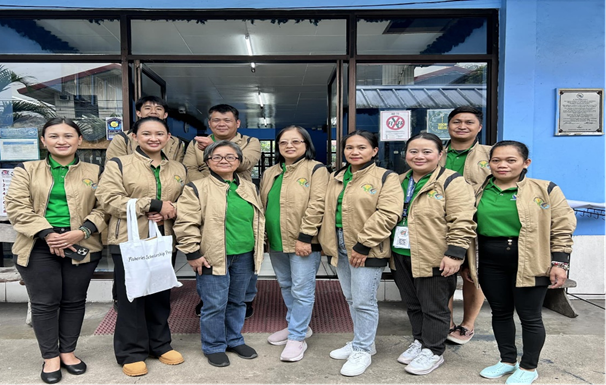
The successful execution of the NQE-FSP was the result of a meticulously coordinated effort by the dedicated personnel of BFAR-CAR. Under the strategic oversight of Director Lois June B. Fermin, the examination process unfolded seamlessly. She was supported by an exceptional team of proctors, examiners, and facilitators, all of whom played vital roles in ensuring the event ran smoothly and efficiently. Their collective commitment to excellence exemplifies the spirit of collaboration in advancing the Fisheries Scholarship Program.
As a testament to the impact of the FSP, former scholar Lorna Velo Marquez shares how the program has significantly aided her academic journey. Through its support, she was able to pursue her studies and develop her potential in the fisheries sector.

Lorna V. Marquez, a proud alumnus of the Fisheries Scholarship Program, shares her inspiring journey and how the program has transformed her academic path. Her testimony is a testament to the profound impact of support and opportunity in shaping future leaders in the fisheries sector.
#FisheriesScholarshipProgram
#FSPCordillera
#NQE-FSP2024
#SustainableFuture
#BFARCordillera
#BFAR
References:
BFAR Official Website.
BFAR. (2020). Fisheries Scholarship Program: Guidelines and Objectives.
https://bit.ly/FSPForms_RegionCAR
Marquez, L. V. (2024). Testimony on the positive impact of the Fisheries Scholarship Program. https://drive.google.com/drive/folders/ 1GJwa Eu8 QYy GMKY6iGvtvE1JAspSnmOat?fbclid=IwY2xjawGLDVxleHRuA2 FlbQIxMAABHUiqQPnJUZlOosxVYUPpQKZjlSe1g_QIb1_axq8tb99BDSLGZ3yzQ9MhwQ_ to em_N8nRbWZ-X1XWeDWU0IoKmQ
PEFC. (2023). SDG Quality Education (SDG 4); No Poverty (SDG 1); and Reduced Inequalities (SDG 10) – Sustainable Development Goals.
About the Author:
 Irene Pedroche-Tanyag is an employee of the Bureau of Fisheries and Aquatic Resources in the Cordillera Administrative Region, currently serving as the Officer-in-Charge of Human Resource Management under the Regional Director’s office. She also acts as the Regional Fisheries Scholarship Program Coordinator for CAR and has recently taken on the role of FSP Cluster Coordinator, with responsibilities extending throughout Luzon. Additionally, she is pursuing a Doctor of Philosophy in Administration and Supervision at Baguio Central University.
Irene Pedroche-Tanyag is an employee of the Bureau of Fisheries and Aquatic Resources in the Cordillera Administrative Region, currently serving as the Officer-in-Charge of Human Resource Management under the Regional Director’s office. She also acts as the Regional Fisheries Scholarship Program Coordinator for CAR and has recently taken on the role of FSP Cluster Coordinator, with responsibilities extending throughout Luzon. Additionally, she is pursuing a Doctor of Philosophy in Administration and Supervision at Baguio Central University.
About the Editor:
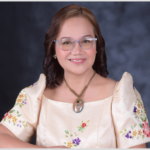 Genevieve B. Kupang is the Dean of the Graduate School and the International Relations Officer at Baguio Central University. A valued member of the Board of Directors for both the Cordillera Association of International Relations Officers and the World University Network of Innovation Leaders, she also serves as the Chair of the Special Interest Groups and as the Peace Education Coordinator for the World Council for Curriculum and Instruction.
Genevieve B. Kupang is the Dean of the Graduate School and the International Relations Officer at Baguio Central University. A valued member of the Board of Directors for both the Cordillera Association of International Relations Officers and the World University Network of Innovation Leaders, she also serves as the Chair of the Special Interest Groups and as the Peace Education Coordinator for the World Council for Curriculum and Instruction.
